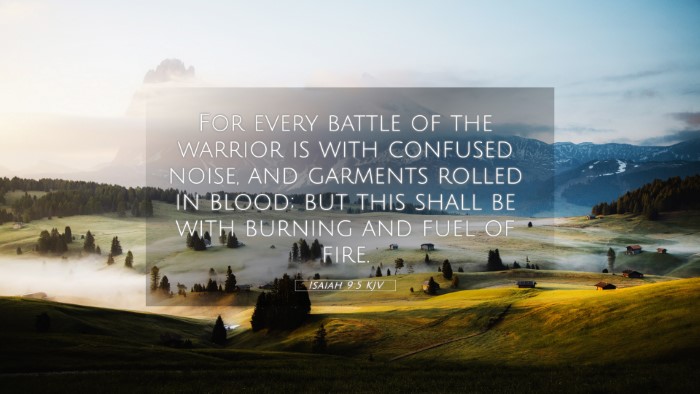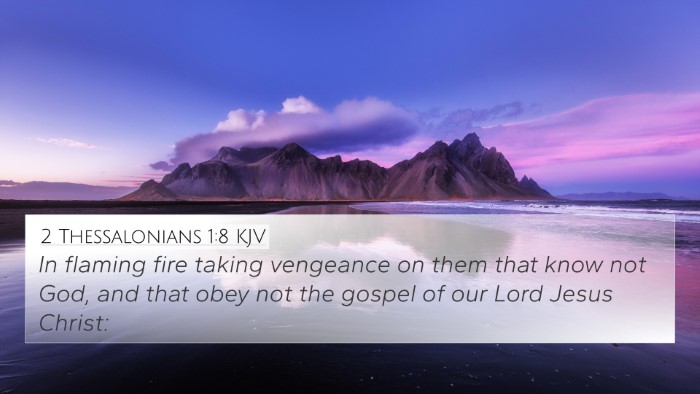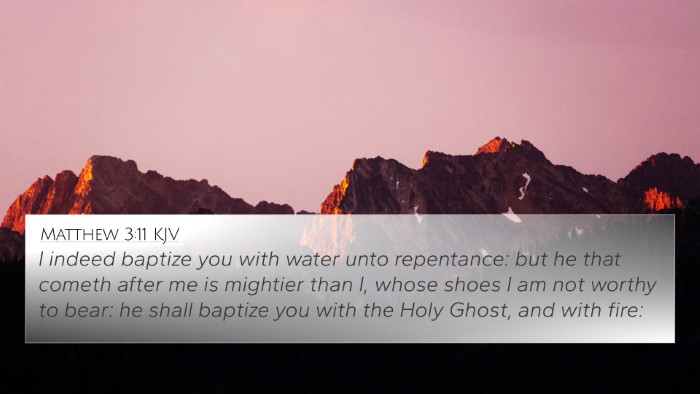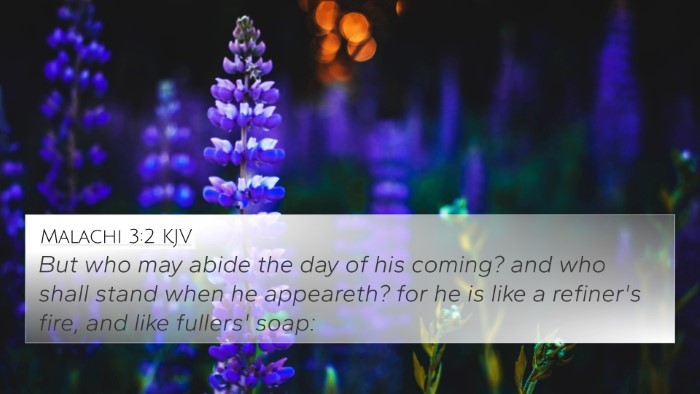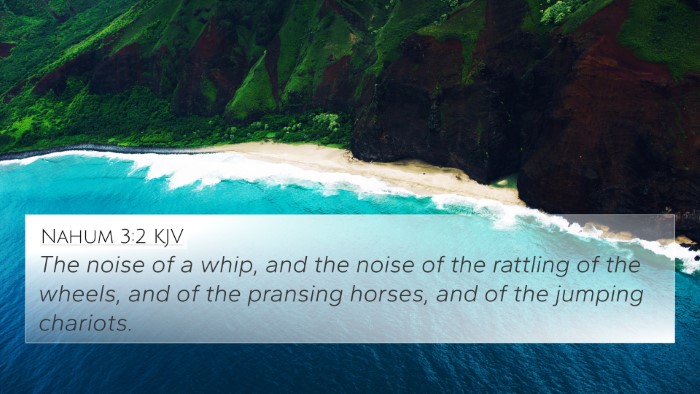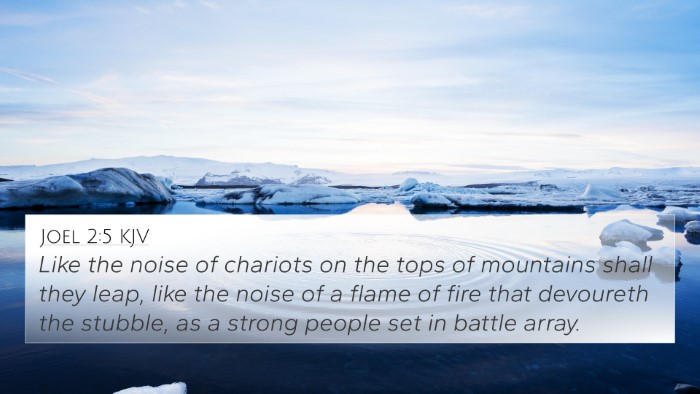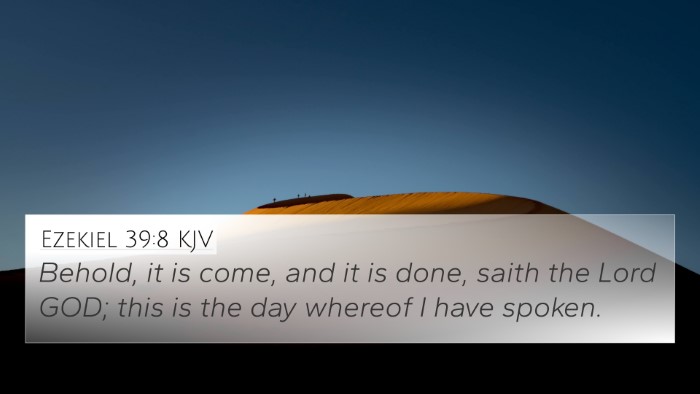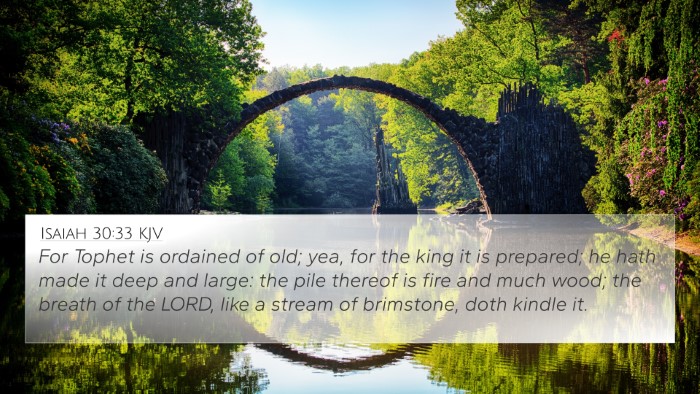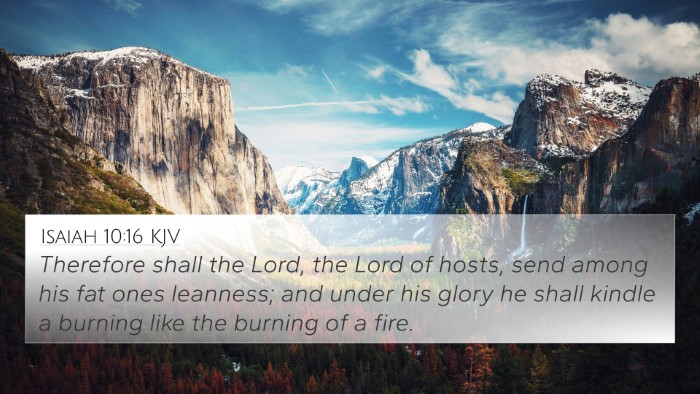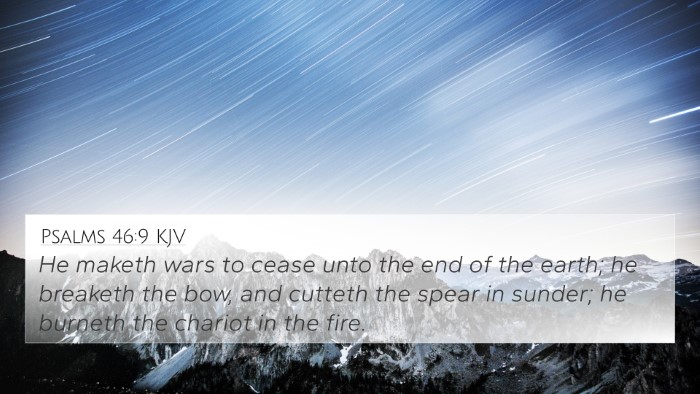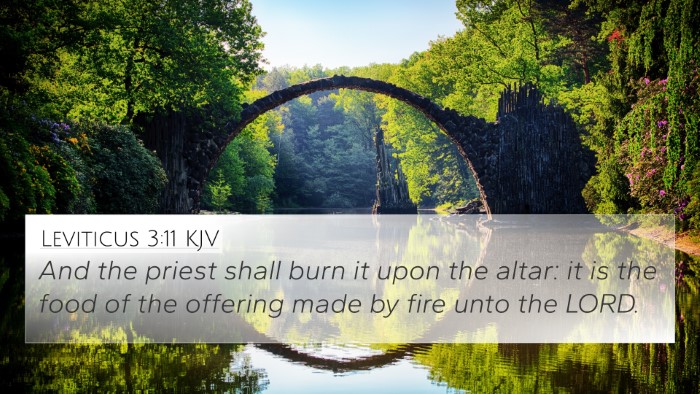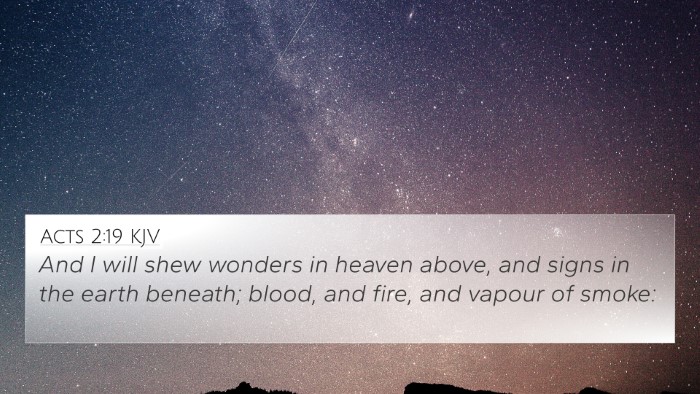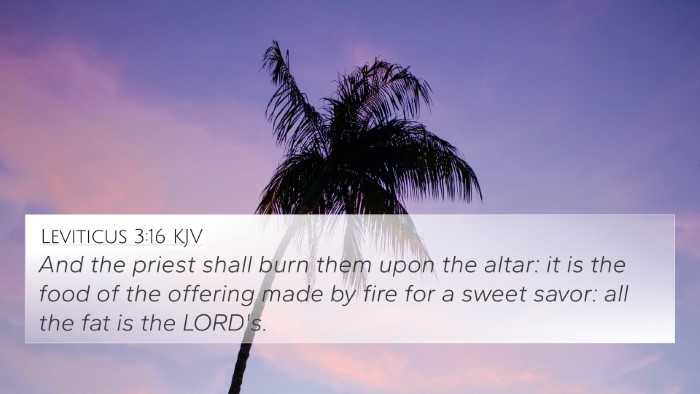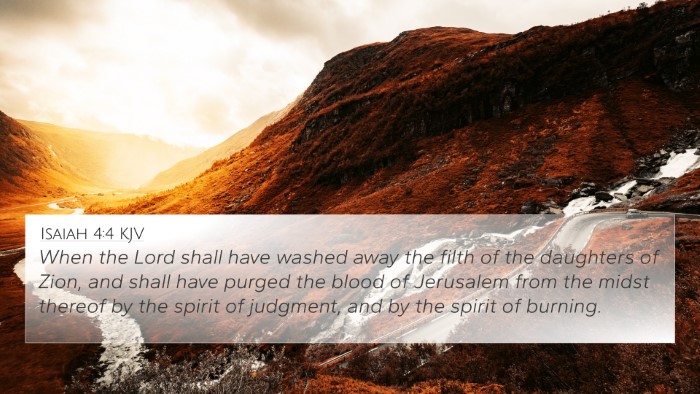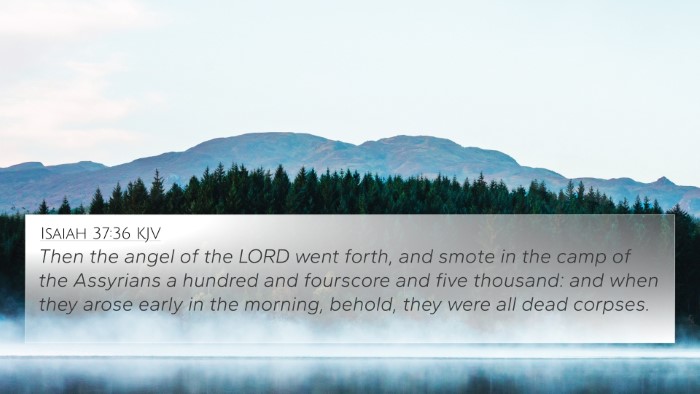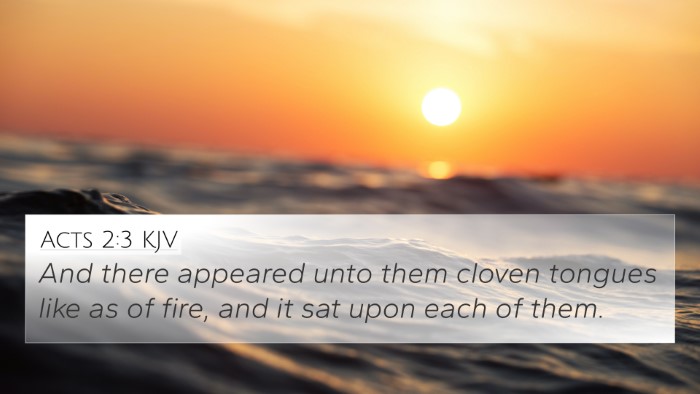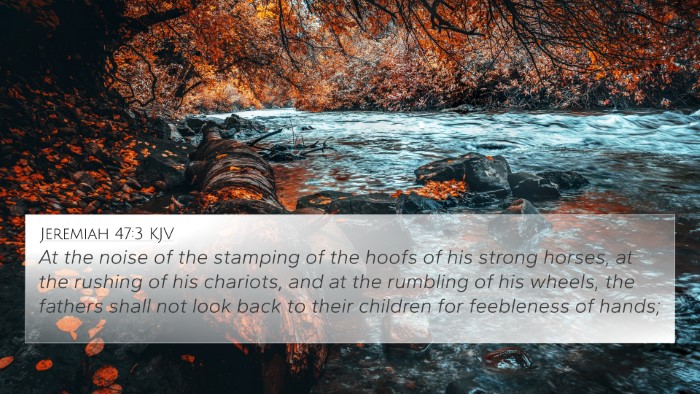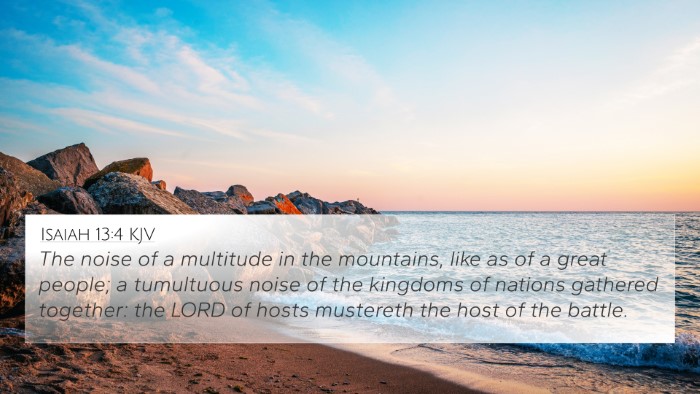Meaning and Interpretation of Isaiah 9:5
Isaiah 9:5 states: "For unto us a child is born, unto us a son is given: and the government shall be upon his shoulder: and his name shall be called Wonderful, Counselor, The mighty God, The everlasting Father, The Prince of Peace." This verse is rich in theological significance and offers insight into the character and mission of the coming Messiah.
Summary of Insights
This verse encapsulates the anticipation of a coming leader, whose attributes and reign will bring profound transformation. The child born is identified with titles that speak to both His divine authority and His human experience.
1. The Birth of the Messiah
Matthew Henry emphasizes that the phrase "a child is born" denotes the incarnation—the profound mystery of the Son of God taking human form. This emphasizes the humility of the Messiah, born into the world like any other child, yet with a divine purpose.
2. The Titles of the Messiah
Each title given—Wonderful, Counselor, The mighty God, The everlasting Father, The Prince of Peace—points to different aspects of His nature and mission:
- Wonderful: Reflects His miraculous works and extraordinary nature.
- Counselor: Indicates His wisdom in guiding His people.
- The mighty God: Affirms His divine strength and authority.
- The everlasting Father: Suggests His eternal nature and paternal care for His followers.
- The Prince of Peace: Promises the peace that comes from His rule and the reconciliation He brings.
3. The Government Upon His Shoulder
Albert Barnes interprets "the government shall be upon his shoulder" as a declaration of Jesus’ sovereign rule. This suggests that He bears the weight and responsibility of governance, a concept echoed in other scriptures indicating His divine authority (see Matthew 28:18).
4. Connection to Prophecy and Fulfillment
Adam Clarke highlights that this prophecy also serves to link the Old Testament with the New, where these titles and the character of Jesus are fully revealed. This prophetic insight gives depth to the understanding of the New Testament events surrounding Jesus' birth and ministry.
Bible Verse Cross-References
This verse is interconnected with several other scriptural references that enhance its meaning:
- Matthew 1:23: "Behold, a virgin shall be with child, and shall bring forth a son, and they shall call his name Emmanuel." This reflects the fulfillment of the prophecy regarding the Messiah's birth.
- Luke 2:11: "For unto you is born this day in the city of David a Savior, which is Christ the Lord." Directly relates to the birth of the Messiah.
- John 1:14: "And the Word was made flesh, and dwelt among us." This aligns with the incarnation theme.
- Romans 5:1: "Therefore being justified by faith, we have peace with God through our Lord Jesus Christ." Connects the title "Prince of Peace" to the New Testament themes of reconciliation.
- Isaiah 11:1-2: Describes the coming Messiah endowed with wisdom and understanding.
- Micah 5:2: Prophecies about the birthplace of Jesus enhance the context of Isaiah's message.
- Jeremiah 23:5-6: Speaks of a righteous Branch raised up for David, highlighting the Messianic lineage.
- Hebrews 7:14: Affirms the priesthood of Jesus, indicating His eternal kingship and priestly role.
- Revelation 19:16: "And he hath on his vesture and on his thigh a name written, KING OF KINGS, AND LORD OF LORDS." References Jesus as the sovereign ruler.
- Galatians 4:4: "But when the fullness of the time was come, God sent forth his Son, made of a woman, made under the law." Highlights the divine timing of the Messiah's coming.
Thematic Bible Verse Connections
By exploring the connections between Bible verses, we can see how the theme of redemption, leadership, and peace appears throughout the Scriptures:
- Hope in Darkness: Isaiah emphasizes hope during Israel's turmoil, a theme prevalent in the New Testament as hope through Christ is central to Christian teaching.
- Fulfillment of Prophecy: The titles given in Isaiah find their fulfillment in the person of Jesus, evidenced through the Gospels.
- Divine and Human Nature of Christ: Emphasized throughout biblical texts, underscoring the significance of Christ’s dual nature as fully God and fully man.
- The Effects of His Reign: Connection to Colossians 1:20 where peace is emphasized as a result of Christ’s work on the cross.
- Eschatological Themes: This connects to Revelation, promoting understanding of Christ’s ultimate reign and peace in the Kingdom of God.
Tools for Bible Cross-Referencing
For in-depth studies involving the connections between Bible verses, consider using these tools:
- Bible Concordance: Helps locate keywords and related verses.
- Bible Cross-Reference Guide: Offers systematic connections between verses and themes.
- Cross-Reference Bible Study: Engages in thematic studies of various scriptures.
- How to Use Bible Cross-References: A guide for effective Bible study methods using cross-referencing.
- Bible Reference Resources: Utilize resources that outline thematic connections and cross-references.
Conclusion
In summary, Isaiah 9:5 is a profound verse that reveals much about the nature and mission of the Messiah. It encompasses rich theological insights, emphasizing the duality of His identity—divine and human—while also highlighting the hope and peace He brings. For anyone seeking to understand this verse in greater depth, cross-referencing with associated biblical texts can serve as a significant tool for exploration and understanding a comprehensive theology surrounding the Messiah.

